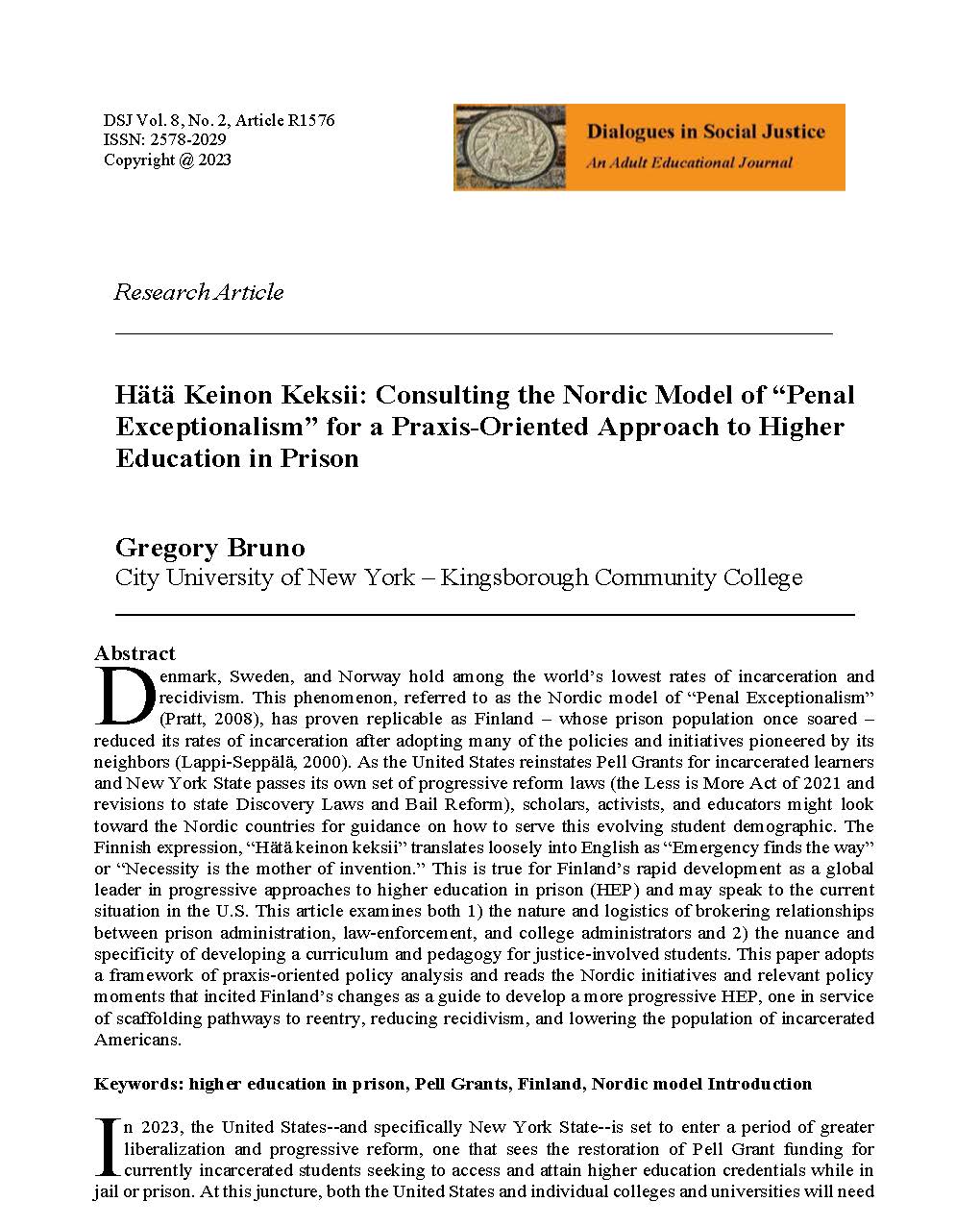Hätä Keinon Keksii: Consulting the Nordic Model of “Penal Exceptionalism” for a Praxis-Oriented Approach to Higher Education in Prison
Abstract
Denmark, Sweden, and Norway hold among the world’s lowest rates of incarceration and recidivism. This phenomenon, referred to as the Nordic model of “Penal Exceptionalism” (Pratt, 2008), has proven replicable as Finland – whose prison population once soared – reduced its rates of incarceration after adopting many of the policies and initiatives pioneered by its neighbors (Lappi-Seppälä, 2000). As the United States reinstates Pell Grants for incarcerated learners and New York State passes its own set of progressive reform laws (the Less is More Act of 2021 and revisions to state Discovery Laws and Bail Reform), scholars, activists, and educators might look toward the Nordic countries for guidance on how to serve this evolving student demographic.

Downloads
Published
Issue
Section
License
Authors who publish with this journal agree to the following terms:
a. Authors retain copyright and grant the journal right of first publication with the work simultaneously licensed under a Creative Commons Attribution License that allows others to share the work with an acknowledgement of the work's authorship and initial publication in this journal.
b. Authors are able to enter into separate, additional contractual arrangements for the non-exclusive distribution of the journal's published version of the work (e.g., post it to an institutional repository or publish it in a book), with an acknowledgement of its initial publication in this journal.
c. Authors are permitted and encouraged to post their work online (e.g., in institutional repositories or on their website) prior to and during the submission process, as it can lead to productive exchanges, as well as earlier and greater citation of published work (See The Effect of Open Access).

